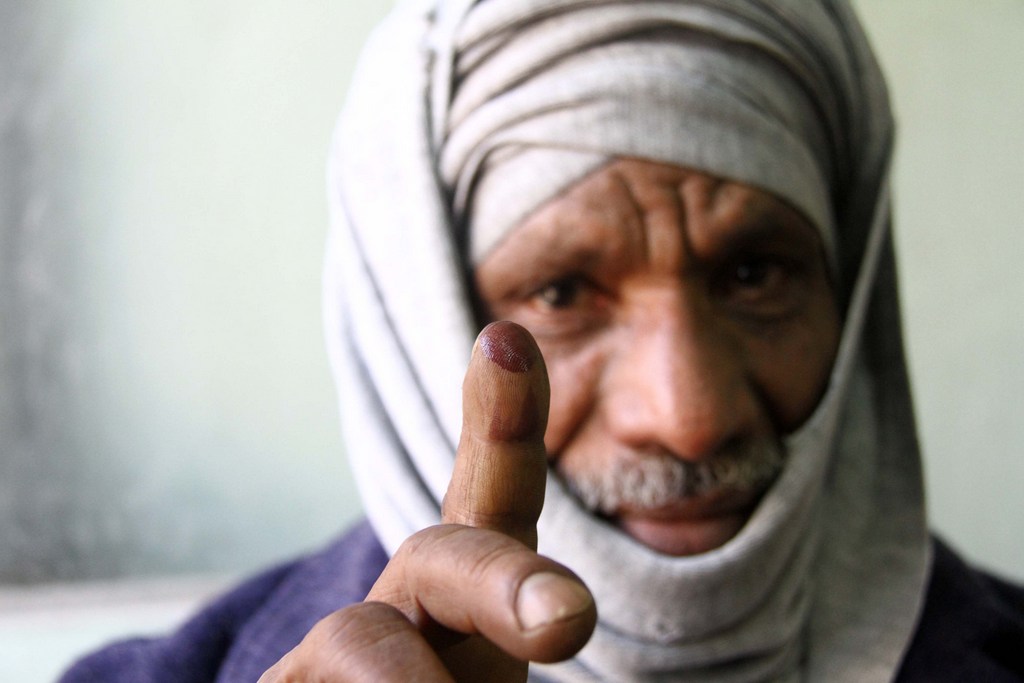
AFP – Damascus has destroyed all its declared chemical arms production equipment, a watchdog said Thursday, as peace envoy Lakhdar Brahimi wrapped up a Syria visit aimed at mustering support for Geneva talks.
“Syria has completed rendering inoperable its chemical weapons production and assembly installations,” said the Organisation for the Prohibition of Chemical Weapons.
Inspectors had until Friday to visit all of Syria’s chemical sites and destroy all production and filling equipment in accordance with a timeline laid down by the Hague-based OPCW and backed by a UN Security Council resolution passed last month.
The resolution was agreed by the US and Russia to avert military strikes on Syria after deadly chemical weapons attacks outside Damascus in August, which the West blamed on President Bashar al-Assad’s regime.
“The Joint Mission is now satisfied that it has verified — and seen destroyed — all of Syria’s declared critical production and mixing/filling equipment,” the OPCW said.
The statement came as Brahimi was preparing to meet in Damascus Thursday with opposition members tolerated by the regime.
He has been travelling the Middle East since mid-October to garner support for the proposed peace talks, dubbed Geneva II. He is due to travel back to Beirut on Friday.
The Syrian leg of the tour is the most sensitive, as the veteran Algerian diplomat needs to persuade a wary regime and an increasingly divided opposition to attend.
On Wednesday he held talks which lasted less than an hour with Assad, during which the Syrian president criticised foreign interference in his country.
“The Syrian people are the only ones who have the right to decide on Syria’s future,” state media quoted Assad as telling Brahimi.
“Putting an end to support for the terrorists and pressuring the states that support them is the most important step to prepare… for dialogue,” he said, using his regime’s term for rebels.
In an interview this month, Assad cast doubt on the possibility of his regime attending the Geneva talks, saying he would not negotiate with any group tied to the rebels or to foreign states.
The main opposition National Coalition has said it will refuse to take part in any talks unless Assad’s resignation is on the table, and some rebel groups have warned participants will be considered traitors.
Russia blasts critics of talks
Russian Foreign Minister Sergei Lavrov, whose country is a key backer of the Assad regime, has blasted critics of the talks.
“Open objections have surfaced against holding this Russia-US meeting, not only among Syrian sides but also among capitals, both in neighbouring and non-neighbouring states,” Lavrov said in Athens on Wednesday.
“We must not allow this initiative to fizzle out,” he added.
In an interview with Russian business daily Kommersant, French Prime Minister Jean-Marc Ayrault said everything should be done to make the planned Geneva talks a success that will usher in a transition government.
Speaking ahead of his visit Thursday to Moscow, Ayrault said he was “pleased that Russia took the initiative” to push for the dismantling of Syria’s chemical weapons arsenal.
“The objective now is to make Geneva II a success,” said Ayrault. “This implies that conditions are created that the Syrian National Coalition can take part in it and that the conference leads to a transitional government wielding full executive powers including the presidency.”
More than 115,000 people have been killed in the 31-month armed uprising against the Assad regime triggered by his forces’ bloody crackdown on Arab Spring-inspired democracy protests.
Thousands more have been detained both by the regime and by rebels, and many civilians, including foreign journalists, have gone missing, some abducted by jihadist groups.
One of those who was kidnapped, Polish photojournalist Marcin Suder, managed to escape his captors and is back home, Poland’s foreign ministry announced on Thursday.
“He was very lucky, he managed to escape,” ministry spokesman Marcin Wojciechowski told AFP without elaborating.
Suder, a 34-year-old freelancer who worked for the Corbis agency and other outlets, was abducted by masked gunmen on July 24 during a raid on a media centre in Saraqeb, in the mainly rebel-held northwestern province of Idlib.


